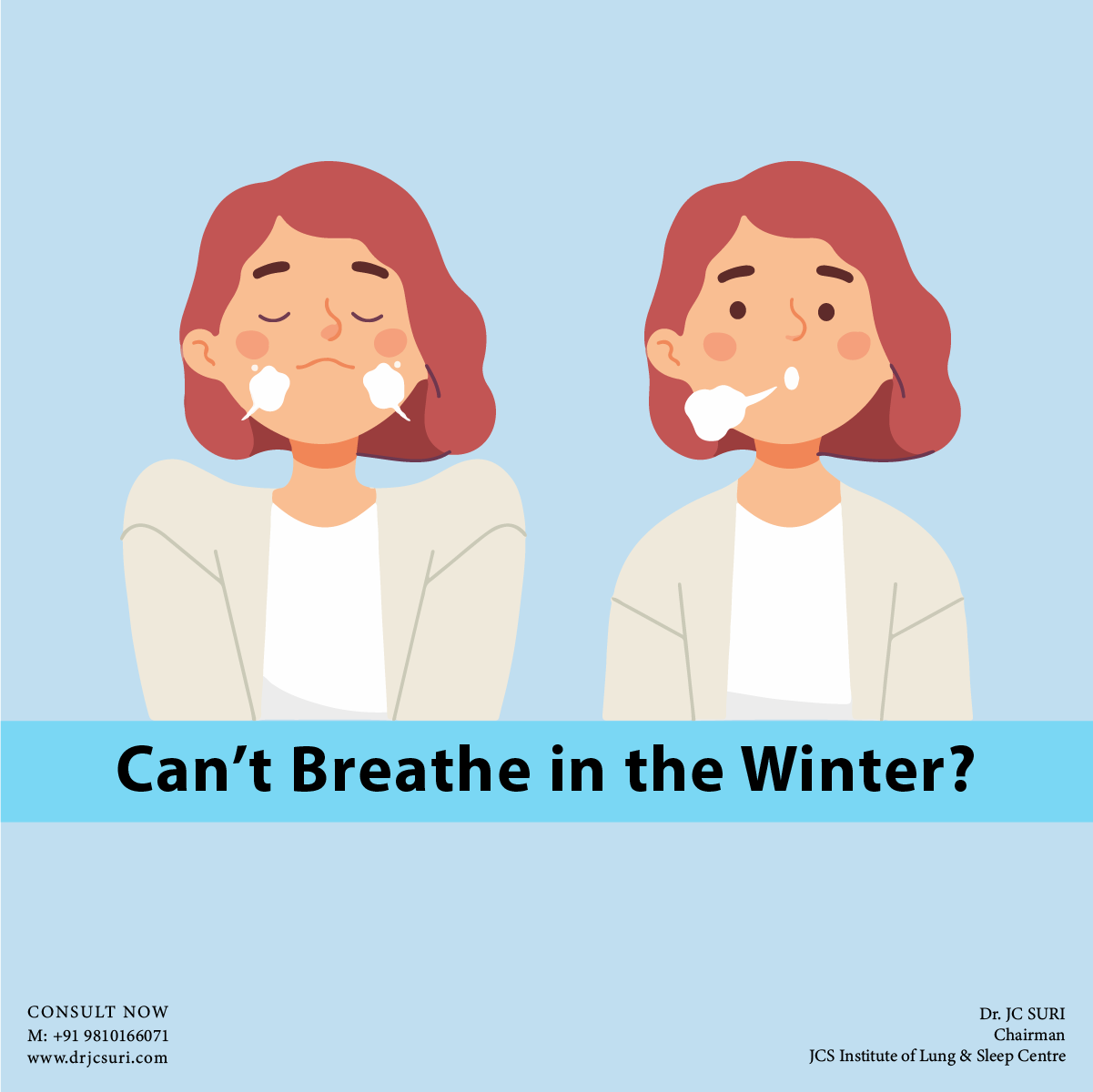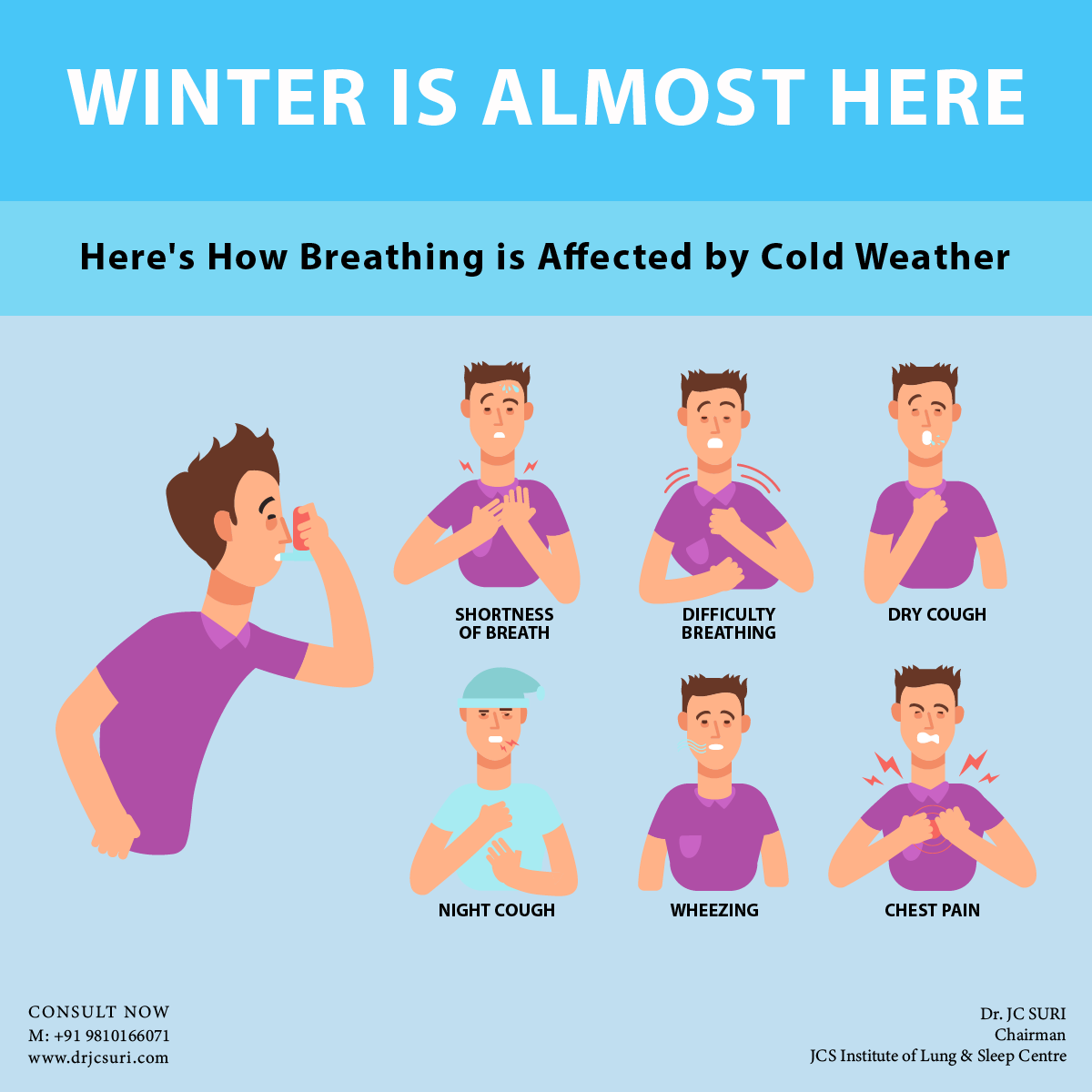
It’s Almost Winter. Here’s How Cold Weather Affects Your Breathing
Cold weather can lead to runny noses, and not just because of flu season.
Colder air may feel wonderful after a long summer, especially if you’re exercising outside. But as the temperature drops, breathing might become more stinging.
You might be curious about how breathing in cold weather is affected when you feel the sting of the cold air in your lungs. Most of the time, a slight burn subsides as you become used to the chilly temps.
However, those who have certain respiratory diseases, including asthma, may be more in danger from cold air.
Cold air is dry air
It’s not always the cold that causes problems with cold air. Our lungs look strong enough to withstand temperatures below zero. Ask any athlete who participates in winter training in the north.
The fact that cold air carries significantly less moisture than warm air is the bigger issue. Additionally, if you have respiratory problems, the dry air may make it difficult for you to breathe.
The dry air in your house, heated by a furnace or boiler, can dry out the mucus in your sinuses even when you’re not outside, which makes it simpler for infections to take hold.
That chilly, dry air can irritate the airways and result in respiratory symptoms like coughing, wheezing, and shortness of breath for anyone who has asthma, COPD, or other lung conditions.
Cold air means more mucus
Your body may overcompensate by making more mucus when your mucus dries out in cool, dry weather. Your blood vessels enlarge as a result of the cold air entering your nose, increasing mucus production. Because of this, you frequently have a runny nose when you come inside from the cold.
Again, mucus plays a crucial role in keeping your airways clean, avoiding infections, and maintaining the moisture in your lungs and nasal cavity. Although it is a natural response, it may worsen congestion and other symptoms if you have ongoing breathing issues.
Flu season doesn’t help
Through a seasonal increase in cold and influenza viruses, cold weather can also have an indirect impact on your ability to breathe. Both the typical cold and the flu can produce an increase in mucus production.
This extra mucus can then enter the lungs as phlegm, worsen lower respiratory symptoms, and cause coughing.
More mucus and phlegm can worsen asthma symptoms or other respiratory conditions even among otherwise healthy individuals. According to 75% of people with asthma, cold and flu viruses can exacerbate their symptoms.
These viruses spread more readily in the winter because cold weather keeps us indoors and inhibits some of our normal immune responses (like when it dries out our mucus).
This can make it hard to tell if the symptoms you have are just from breathing cold air or because you’re coming down with something.
Generally speaking, if your symptoms subside when you leave the cold, the chilly air was likely the cause. If not, there might be more going on, in which case it might be time to see a doctor.
Also, keep in mind that you should always tell your doctor if you experience any sudden or inexplicable shortness of breath.
How to get relief and stay healthy
Take special care during the colder months if you are prone to breathing issues because of asthma, COPD, or other respiratory disorders. Here are a few tips to help you stay as healthy as possible when the cold air hits your lungs and airways.
1. Breathe through your nose. Your nose warms and moistens cold air more effectively than your mouth, so breathing through your nose may help reduce discomfort from cold air.
2. Put a scarf over your nose and mouth. This creates insulation against the cold air and traps some heat from your breath.
3. Stay hydrated. You become dehydrated more rapidly in dry air, therefore it’s crucial to increase your hydration intake in the winter.
Maintaining hydration will keep your mucus and phlegm moist, improving the insulation of your lungs and nasal passages against the cold.
4. Use a humidifier indoors. When the air inside your home is already bone-dry, it can be difficult to ward off the dry air outside. You can avoid drying out before you even step outside by using an indoor humidifier.
5. Make sure you keep your medicines in stock. If you take quick-relief medications for COPD or asthma, make sure you have them on hand and ready to go before you venture outside in the cold. If you begin to experience symptoms, take your medications as soon as possible.
6. Monitor air quality. In people who have respiratory conditions, air pollution can make their symptoms worse. Keep an eye on the forecast for the quality of the air, and when pollution levels are high, stay inside.
Most of the time, cooler air has no discernible impact on how we breathe. Usually, it just denotes some minor discomfort. But not everyone can say that. You can discover that cold air aggravates your respiratory conditions, such as asthma, COPD, or other one.
Additionally, your health can vary, and certain diseases may increase your vulnerability to respiratory problems. Consult your doctor if you find it more difficult to breathe in the cold and make sure you’re ready to go outside.

